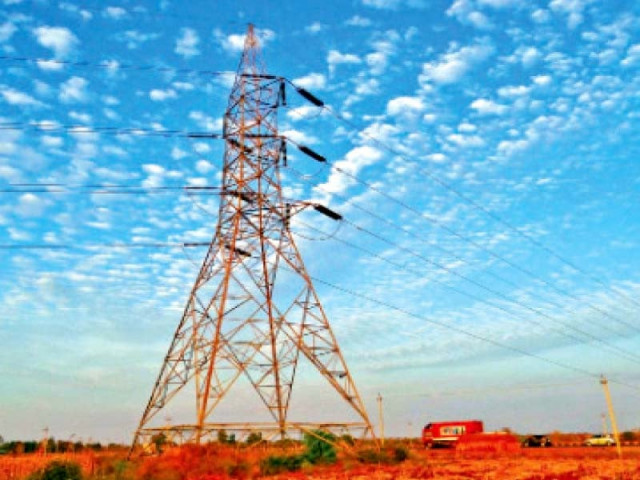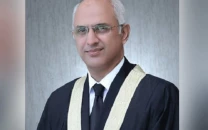Karachi consumers to get big power tariff relief
Relief comes on account of monthly fuel and quarterly adjustments

The consumers of K-Electric (KE) are set to receive a major relief of Rs9.97 per unit reduction in power tariff on account of monthly fuel and quarterly adjustments.
The National Electric Power Regulatory Authority (Nepra) on Wednesday indicated a reduction in tariff for KE consumers by Rs2.15 per unit on account of fuel adjustment for the month of October this year.
It also indicated another cut of Rs7.83 per unit on account of adjustment for the first quarter of the financial year 2022-23.
The power regulator conducted a public hearing to decide the revision in the tariff proposed by KE in its separate petitions for monthly fuel and quarterly adjustments.
In one of the petitions, KE had sought a reduction in tariff by Rs1.88 per unit on account of fuel adjustment for the month of October.
However, Nepra indicated a reduction of Rs2.15 per unit keeping in view of the scrutiny of data submitted by the power utility.
Three issues were taken up during the public hearing which included whether or not the required fuel price adjustment was justified.
Secondly, it was considered if the requested quarterly variation was justified.
The third point was whether or not KE had followed the merit order while giving dispatch to its power plants as well as purchasing electricity from external sources.
It was noted that KE’s power generation was most expensive at a rate that went up till Rs45.43 per unit produced from high-speed diesel.
The power generation from Bin Qasim Power Station 3 was at the lowest rate of Rs20.32 per unit.
The average rate from furnace oil-based power stood at Rs40.83 per unit, re-gasified liquefied natural gas (RLNG) at Rs27.88 per unit, and indigenous gas-based electricity at Rs7.26 per unit.
The average rate of electricity from all resources stood at RR32.96 per month during the month of October.
However, the average electricity rate from external resources stood at Rs12.01 per unit. KE procured electricity from the Central Power Purchasing Agency-Guarantee (CPPA-G) at Rs8.85 per unit.
However, Lotte Chemical, Tapal and Gul Ahmed provided electricity at the most expensive rates of Rs33.52, Rs31.47 and Rs32.52 per unit, respectively.
During the month of October, prices of furnace oil dropped by 7%, RLNG from Sui Southern Gas Company (SSGC) by 16%, RLNG from Pakistan LNG Limited (PLL) by 9% and high-speed diesel by 11% compared with the rates in the month of September.
During the hearing, interveners raised the issue of converting gas from Bin Qasim Power Station 3 to some other power plants owned by KE.
The officials of the power utility said they had built an infrastructure to use gas allocated for Bin Qasim Power Station 3 from third parties including the PLL.
However, the SSGC raised objections and said that the gas could be diverted to some other plants in case of technical issues being faced by one.
The SSGC officials said KE could divert RLNG being taken from the PLL for other plants because of technical reasons if it was cheaper compared with other fuels.
Inteveners also raised the issue of the upcoming extension in electricity supply to KE.
They said Tapal and Gul Ahmed plants were generating very expensive electricity, which they were supplying to KE.
Therefore, they added that they were charging high prices on account of fuel prices, capacity payment, maintenance and other costs, which should be rationalised to reduce electricity rates.
The Nepra chairman said these plants would provide electricity to KE without the “Take or Pay” clause.
He added that this move would help in not passing on the capacity payment charges to the consumers.
These plants had now approached Nepra for an extension and KE had given its consent for this purpose.
The Nepra chairman said the regulator wanted to shut down all the old power plants and did not want to give them an extension.
However, he added it was still giving an extension to them keeping in view the requirement of electricity, the demand for which hit the peak level in summer and even in the month of October.
“If they are not given an extension, 200 to 250 MW electricity would be out of the system of KE that could result in power outages,” he noted.
Another intervener said KE plants were generating 40% expensive electricity and they should be shut down.
He added that KE was resolving issues for the business community but it should also take care of the common person, who was suffering because of several issues.
During the hearing, an issue was raised that the government had given subsidy to KE consumers in case of an increase in electricity rates.
The question was raised whether or not the Rs7.83 per unit reduction in tariff should be passed on to the consumers.
The Nepra chairman replied that according to common sense, relief should be passed on to the consumers.



















COMMENTS
Comments are moderated and generally will be posted if they are on-topic and not abusive.
For more information, please see our Comments FAQ